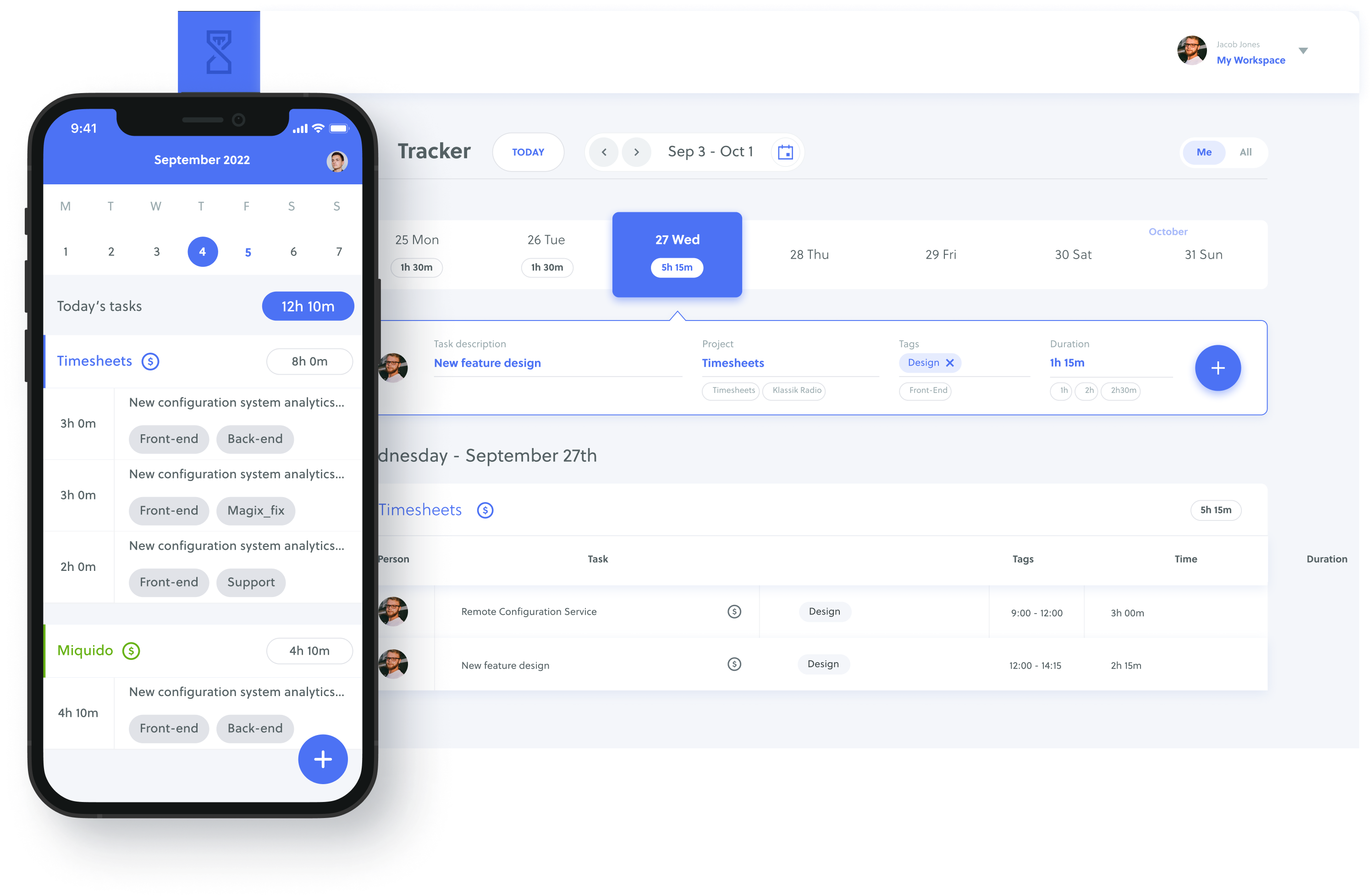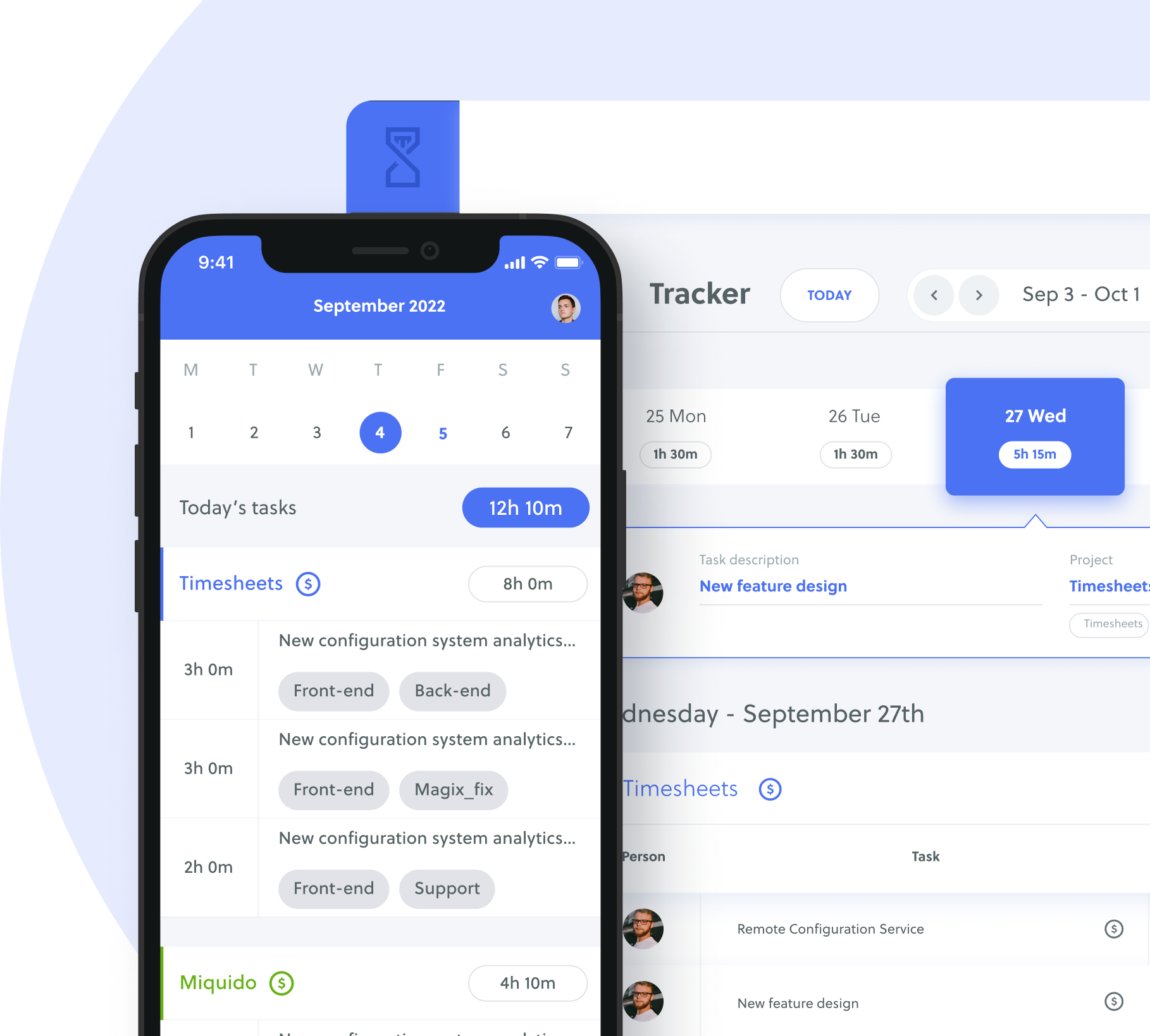With mental health and wellbeing a bigger priority for businesses now more than ever before, the concept of an 80 hour work week seems jarring. Many startups have been making headlines for their well being-focused policies. Dating app Bumble announced they would be giving all employees the same week off every year, on top of their unlimited paid vacation days. The president of Bumble, Tariq Shaukat explained the reason for this decision: “[it is] increasingly clear that the way that we work, and need to work, has changed and our new policies are a reflection of what really matters and how we can best support our teams in both their work and life.”
The way we work has indeed changed. With the pandemic forcing office-focused work to transform, even the most traditional industries are embracing remote, hybrid, and flexible work. Employees now expect their employers to give them a better work-life balance.
However, in stark contrast to this, many swear by the 80 hour work week. And those that do support it are incredibly successful people. Elon Musk, Jeffery Immelt, Grant Cardone, and Marissa Myer are just a few names famous for their work ethic and support of extreme hours.
Does working for double the hours the average person works a week actually generate more success? What are the dangers associated with working like this, what kind of person does it suit and how can you manage your time to fit it in?
Table of Contents
The motivation behind an 80 hour work week
The average person works 40 hours a week. Double this is a huge commitment and something many may consider unmanageable. Yet the numbers show that there are a significant amount of people who work 80+ hours a week.

Data from Harvard Business Review reveals that 62% of high-earning people work at least 50 hours a week or more. 35% work more than 60 hours and just 10% work more than 80 hours a week.
Of those that work in ‘extreme’ jobs – those that require a huge amount of responsibility and commitment – 56% work 70+ hours a week and 9% work 100 hours or more. 42% of this group of people take 10 or fewer days per year.
Famous people who work long hours
The popularity of the 80 hour work week is perhaps due to it being advocated for by some of the world’s most successful business figures. Promising life-changing results, these famous individuals are proof that putting in more effort and time will generate faster results. Here are a few famous people that work long hours:
Elon Musk
Elon Musk may be worth 214 billion USD and be the founder, CEO, and chief engineer of SpaceX; angel investor, CEO, and product architect of Tesla; founder of The Boring Company; and co-founder of Neuralink and OpenA, but he had humble beginnings. When starting his first company with his brother, Musk said the two slept on the couch in their small rented office. Sharing just one computer, and quite literally eating, sleeping, and breathing his work, the entrepreneur spent every waking hour at work. In an interview with VatorNews, Musk stated that he believes by working double what the average person does, you will get twice as much done and reach your goals in a shorter amount of time. His advice? To “work like hell” to improve the odds of your success.
In a Reddit AMA, Elon Musk said he still manages to get a healthy amount of sleep – around 6 to 6.30 hours a night. Despite working long hours, he also revealed that he makes time for a few daily habits that get him in the right headspace, such as his morning shower and coffee.
According to Finty, Musk also claims that he regularly works 80 to 100 hours a week, with his days organized into 5 minute segments to keep him on track.
The billionaire has also acknowledged the downfall of working such intense hours. In various interviews, Musk admits that he frequently misses meals and often forgoes his nutrition.
Jeffrey Immelt
Jeffrey Immelt is a business executive currently working as a venture partner at New Enterprise Associates after previously serving as the CEO of General Electric from 2001 to 2017, and the CEO of GE’s Medical Systems division from 1997 to 2000.
In an interview with Yicai Global, Immelt was quoted saying: “You know, I haven’t rested for 35 years. I’ve worked 100 hours a week doing one thing. I know there’ll be a next act, but I don’t know exactly what it’s going to be, but I’m excited to think about it.”
According to CNN Money, Immelt’s time management is second to none. His “iron discipline” has been with him his whole life, even during his time at Harvard Business School which he approached like a job. He is quoted saying that “there are 24 hours in a day and you can use all of them”
Grant Cardone
Entrepreneur, bestselling author, motivational speaker, real estate investor and sales coach, Grant Cardone, is as famous for his work ethic as he is for his multi million dollar fortune.
Cardone told CNBC that the secret to his success is the fact he works 95 hours a week: “if you ever want to be a millionaire, you need to stop doing the 9-to-5 and start doing 95.”
Similarly to Jeffrey Immelt, Cardone makes sure to use absolutely every minute of his 24 hours to further the success of his business.
Marissa Mayer
Marissa Mayer is a businesswoman and investor who co-founded Sunshine Contacts, formerly serving Yahoo!’s president and chief executive, and was an early employee at Google.
How did Mayer become so successful in business? Her infallible work schedule. To Bloomberg, Mayer claimed that at Google, she worked 130 hours a week by being strategic about when she slept, showered and even went to the bathroom. She made use of Google’s office nap rooms as it was a safer option than leaving at 3am.
Mayer believes her and Google’s success was because of sacrifices the early employees made: “For my first five years, I did at least one all-nighter a week, except when I was on vacation—and the vacations were few and far between.”
Indra Nooyi
Indra Nooyi is a business executive and former CEO and chairperson of PepsiCo. Ranked as one of the world’s most powerful women, Nooyi is known for working 18 to 20 hours a day for the last 40 years. During her time at PepsiCo, she woke up at 4 am to fit everything in and only managed to sleep as little as 4 hours a night!
Sir Martin Sorrell
Businessman and the founder of the world’s largest and highest earning advertising and PR group, WPP pc, Sir Martin Sorrell is famous for always working – even on holiday. During his time at WPP, he is said to have answered emails 24 hours a day and traveled all over the world on a regular basis.
How productive is an 80 Hour work week?
While an 80 hour work week implies a whole extra day dedicated to working, it does not necessarily mean the same level of productivity.
Arguably, the quality of work is more important than the quantity. Spending 2 hours working on a project and delivering great results while you are well-rested and energized, is far more beneficial than 2 hours of work while you are sleep-deprived and unfocused. Doing work when you’re not feeling your best can also mean you end up taking longer to complete it or even redoing work you’ve already done. Work efficiency is something you can easily track using digital tools to ensure that you’re always getting the most out of the minimal amount of input. Avoiding interruptions, learning to say no, and properly organizing your work day may mean you’re left with more hours than you thought you had.
Other forms of time management, like the Pomodoro technique, focus more on optimising your work time by making sure you have regular breaks, rather than trying to fit in a huge amount of hours in one day.
There’s proof, too, that you can be much more productive when you give yourself a break, stop aiming for perfection, and even delegate tasks instead of trying to do everything yourself. Read more about productivity on our blog
How to work 80 hours a week efficiently?
One of the key things to understand is that while 80 hours a week might sound near impossible to fit into your schedule, you actually have more time than you think. The problem is that we often don’t realize where our time is going as our time management is poor.
To commit to the 80 hour work week effectively, you first need to work out how many hours you have for work and other activities. Once you do this, you may be surprised to see how many hours you have to play with.
It’s also incredibly important to block time for non-work-related activities that are meaningful and helpful to you. This means blocking time for sleeping, spending time with family, hobbies, and household responsibilities. Remember that working 80 hours a week is a commitment that the average person will not do, so you need to elevate your level of organization.
It’s also important to create a schedule that takes into account your personal preferences, needs, and tendencies. The standard 9-5 work day model is really just an estimation of when people are at their most productive. However, as an individual, you will likely have your own strengths and weaknesses that you can work around for optimal productivity. If you are a morning person, schedule your hard tasks early in the morning and tackle them first. Even if you work best at 3 am, set your schedule to accommodate this. Everyone is different and so no schedules should be the same.
Thankfully, there are a number of helpful digital apps that you can utilize to ensure your time is organized. Digital planners, calendars, and time trackers (such as Quidlo Timesheets) can help you keep on top of your hours, as well as allowing you to measure exactly how long specific tasks take.
Sample daily schedule when working 80 hours a week
Here’s an example of how you could create your 80 hour work week schedule:
There are in total 168 hours in a week. Let’s say that you need to have 7 hours a night to feel well-rested and focused. So that’s 49 hours of your week allocated for sleep. That leaves you with 119 hours of awake time to work with. Your day job equates to 10 hours a day and 50 hours a week, leaving you with 69 hours. Despite being perfectly organized, you know that life tends to be unpredictable, so you give yourself 15 hours a week for unplanned events and daily tasks. After this, you have a total of 54 hours. You can allocate 30 of these to working on your side hustle. You then have 24 hours left of leisure time you can use to spend making sure your mental and physical health are looked after.

On this particular day, you have 5 hours of family, meal, leisure and wellbeing time, 12 hours of work, and 7 hours of sleep. As you can see, with proper planning, this schedule would allow you to fit in a lot of work hours while not compromising on sleep or leisure time.
What are the negative consequences of an 80 hour work week?
In an internal survey that has since gone viral, Goldman Sachs found that their first year analysts work on average 95 hours a week or more. The survey revealed that the analysts:
- slept just 5 hours a night
- rated their physical and mental health at a 3 on a scale of 1-10
- rated their personal life a 1 out of 10
This survey demonstrates clearly the negative impact an 80+ hour work week can have. The analysts lacked sleep and their health suffered greatly. Working for such long hours also affected their personal lives so severely that they gave it the lowest score on the scale.

As demonstrated by this example, working such extreme hours can cause aspects of your life to suffer. Here are some of the problems that can occur:
Mental Problems
Studies suggest that working long hours can have a negative impact on mental health, with long hours being shown to cause depressive symptoms or insomnia. One study on workers in Shanghai, for example, found that those who worked over 60 hours a week had poorer mental health than those who worked 40 or less.
Working long hours and having a heavy workload can also increase the likelihood of burnout – a specific type of work-related stress which manifests as physical and emotional exhaustion.
Physical Health Problems
When we work, especially towards tight deadlines, we are typically under stress. Stress is a normal bodily response to external triggers that is very much a part of life. Experiencing small amounts of stress at points is natural and has no cause for concern. The problem arises when you put your body under stress for long periods of time which can have detrimental consequences.
In a global study, the World Health Organization (WHO) found that 745,000 people died in 2016 from stroke and heart disease due to long hours. The study also revealed that working more than 55 hours a week is associated with a 35% higher risk of stroke and a 17% higher risk of fatal heart disease – compared to a working week of 35-40 hours.
Family and Relationships
Working 80 hours a week can equally affect family and relationships. Spending so much time at work can easily lead to a breakdown in communication and even conflict with loved ones. A study by the University of Maryland found that long work hours can increase the likelihood of family conflict, caused mainly by stress-related health concerns. Virginia Major who conducted the study, said: “One of the things that was most striking to us was that the relationship between work hours and work interference with family held regardless of how flexible an employee’s schedule was or how much responsibility he or she had at home for child care or other family duties.”
How can you avoid burnout when working 80 hour work week
Although the 80 hour work week can lead to negative consequences, there are things that you can do to make sure that you avoid them and protect your mental and physical health.
Make time for things that are energizing and restorative
To survive extreme hours, you need to do one thing every single day that replenishes you. This can differ depending on your needs and preferences, but something like making time to sit down for a family breakfast, having a relaxing bath at the end of the day, or going for an afternoon walk, is a good idea.
This thing should act as your daily self-care activity that makes sure you have some dedicated time to look after your physical and mental health. Block out this time every day as you would with work-related tasks to ensure it does not get forgotten.
Create healthy habits and maintain them
Healthy habits are important to have, and working long hours make them even more so. Things like maintaining a good diet, eating regularly, drinking plenty of water, and fitting in some exercise are all habits you should keep. These will help to prevent any health problems and will reduce some of your stress. If you have these predictable moments each day, they’ll help keep you balanced.
Get enough hours of sleep for your needs
Getting enough sleep is something many struggle with, and especially those working more than 80 hours a week. Because everyone is different, you should find out exactly how much sleep works for you, rather than what others are doing.
Make sure you get enough hours of sleep a night so that you feel well-rested and energized the next day. This might be shorter or longer than others. Typically at least 7 hours is suggested.
Be wary of oversleeping as this can sometimes cause you to be more unproductive and will obviously eat into your valuable time.
Make time for loved ones
Even if it’s just a quick text or call a day, make sure you stay connected with those that matter most to you. As mentioned, eating properly is something that should be considered just as important as your meetings or projects. It’s a good idea to combine family or friend time with your meals so that you save time for work, but can still maintain a healthy regime.
If you plan on undertaking extreme hours for a limited time, it might be worth sitting down to explain the change to your loved ones, so they understand that you will be time-poor for a while. This will help them to support you and feel valued while allowing you to communicate the change with them openly.
Schedule time for everything, work and non-work related
Your hobbies, exercise time, interests, appointments, and nutrition should all be scheduled and treated as just as important as your work tasks. To avoid letting these things slip, add them to your diary. Let others know that you’ll be unreachable at these times to create a healthy boundary that ensures your entire life is not absorbed by work.
Check in with yourself regularly
The 80 hour work week is definitely not for everyone. Make sure to check in with yourself and assess honestly how you are coping. Are you feeling close to burnout? Are you anxious? Upset about missing family? Overly stressed? If you are struggling at this point, you should consider a less rigorous schedule or make some time to decompress. Speaking to others about how you’re doing may help too, and they can address any concerns they may have.
Use non-work time wisely
Instead of scrolling social media in your dedicated non-work time, do something that will benefit you in the long term. Reading something for enjoyment, going to the gym or even a therapy session will be better for your wellbeing and will allow you to maintain your 80+ hour work week for longer.
Make time for exercise
Whether you’re an athletic person or not, exercise is one of the best ways to improve your mental and physical wellbeing.
Physical activity increases the body’s production of endorphins, which are neurotransmitters than make you feel good. As well as this, exercise can also be a form of meditation. By forcing yourself to focus on your breath and movement, you’ll soon forget the stressors and tensions of the day.
One of the key consequences of working long hours is high stress. The good news is that exercise is a proven stress-buster, all while keeping your body healthy and fit. Exercise imitates the effects of stress, like the fight or flight response, and can help your body to practice working through the harmful effects it has.
Is it worth working 80 hours a week?
Some people opt to work 80 hours a week only occasionally when it’s needed, for example, to catch up on your workload, to prepare for a major project, or make time for later on. In this case, working 80 hours a week can yield good results as it means you’re only putting yourself under that pressure for a short time.
Working an 80 hour week might also be worth it if you’re balancing multiple commitments that will help your success in the future. For example, working a day job and studying in the evenings. Again, knowing that it is only temporary can help get you through.
The same can be said for those with side hustles. It can be a great way to generate multiple incomes at the same time.
The 80 hour work week will not be worth it if you don’t practice healthy habits, however. If working long hours start to affect your personal life or your physical and mental health, it’s not worth it. You’ll be putting yourself at risk of serious health issues and burnout which could make you very unproductive, or even unable to work in the future.
Who is the 80 hour work week for?
The 80 hour work week is definitely not the norm for a reason. It takes a specific type of person to thrive off of this many hours of work. Most people are better suited to working 40 hours a week, giving them much more personal time to keep themselves healthy and balanced.
The people that may find the 80 hour work week the key to their success are:
Entrepreneurial types
80 hours a week may suit entrepreneurial types who thrive off of their work and view it as their passion more than they do labor. Elon Musk, for example, lives and breaths his work. It’s every much his love as it is his career. People like Musk live to work but enjoy the journey – even through the stressful moments and sacrifices.
Resilient people
To be able to successfully manage an 80 hour work week without letting your health suffer, you’ll have to be a very resilient person, able to take on stress and pressure with limited time to spend recharging.
Organized workers
There is no question that to work 80 hours a week, you need to be an incredibly organized worker. Planning your schedule and blocking out your time is the absolute key and the only thing that will ensure you don’t hit burnout very quickly.
Conclusion
In summary, the 80 hour work week is not for the faint-hearted. Although famous business leaders often reveal that the secret to their success is hard work, and a lot of it, the negative consequences of extreme hours cannot be ignored. Working for long hours has been proven by science to lead to mental and physical health problems like burnout, strokes, depression, and even death.
All this means that the 80 hour work week should be approached with extreme caution. Long hours may be manageable for some more than others. Some personality types, like entrepreneurial individuals, who thrive off of their work and see it as their life’s focus, may find that working 80 hours or more is achievable. People who decide to take on long hours must equally be resilient and hyper-organized to ensure that they don’t experience severe health repercussions.
Even for these types of people, working 80 hours needs proper time management, planning and a huge emphasis on tasks that prioritize wellbeing. Fitting in healthy habits and time with loved ones, for example, can help those working long hours to maintain it for longer and keep themselves balanced and healthy.
Overall, the 80 hour work week has shown to have its successes – proven by the Grant Cardone’s of the world. However, even those that regularly work extreme hours admit that they often sacrifice elements of their lives, like proper nutrition or sleep.
Would you ever consider the 80 hour work week?







